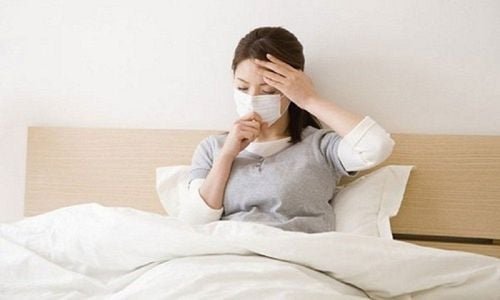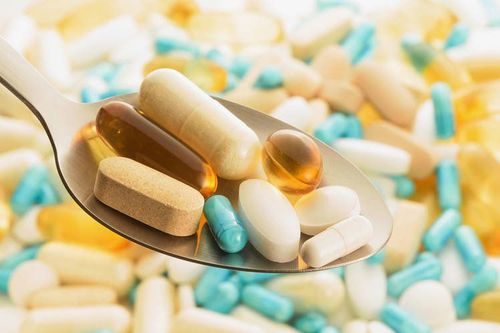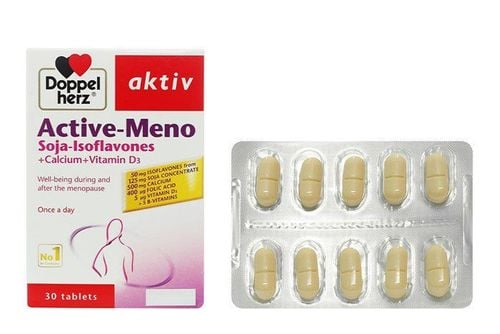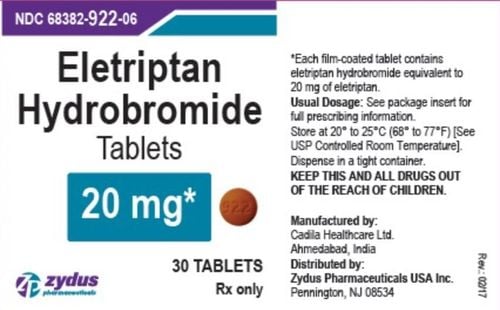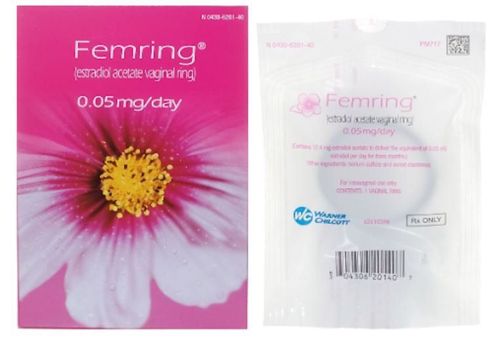This is an automatically translated article.
Headaches can have many causes, and hormonal changes are also one of the factors that trigger migraines in women. Most cases of headaches often do not go to a doctor or treat them thoroughly, making the condition more and more serious.1. What is an endocrine headache?
Headaches can be caused by many factors, including genetics and diet. In women, changes in hormone levels are also a major contributing factor in chronic headaches and menstrual migraines.
Hormone levels change during the menstrual cycle, during pregnancy, menopause and sometimes hormone levels are also affected by oral contraceptives and hormone replacement therapy. Women with hormonal headaches often find relief when they are pregnant or when they reach menopause.
2. Causes of Hormonal Headaches
Headaches, especially migraines, are related to the female hormone estrogen. Estrogen controls chemicals in the brain that influence pain perception. Reduced estrogen levels can cause headaches. Hormone levels change for a variety of reasons, including:
Menstrual cycle Pregnancy Pre-menopause and menopause Birth control pills and hormone replacement therapy
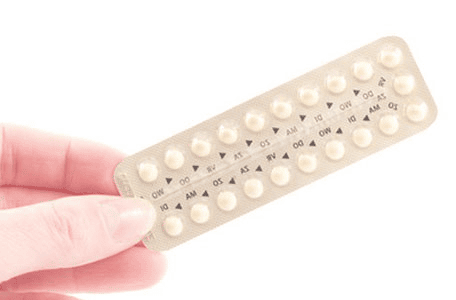
Thuốc tránh thai có thể là một trong các nguyên nhân gây đau đầu do nội tiết tố
In addition, there are other factors that can lead to migraines
Genetics Skipping meals Too much or too little sleep Exposure to bright lights, sounds or smells Changes in weather, extreme weather Harsh Abuse of alcohol, especially red wine Consuming too much caffeine or being on a caffeine withdrawal Stress Eating processed meats, hard sausages and smoked fish High use of MSG, a flavor enhancer Taste Excessive use of soy products High use of artificial sweeteners.
3. Symptoms of Hormonal Headaches The main feature of a hormonal headache is the occurrence of headaches or migraines. However, many women may also experience other symptoms, and telling a doctor all of the symptoms can help them diagnose if they really have a hormonal headache.
Menstrual or hormonal migraines have many of the same symptoms as regular migraines and may or may not have prior symptoms. A migraine is a throbbing pain that begins on one side of the head. It can also be associated with sensitivity to light and nausea or vomiting. Other symptoms of a hormonal headache include:
Loss of appetite Feeling tired Pimples Joint pain Decreased urination Lack of flexibility Constipation Cravings for alcohol, salt or chocolate
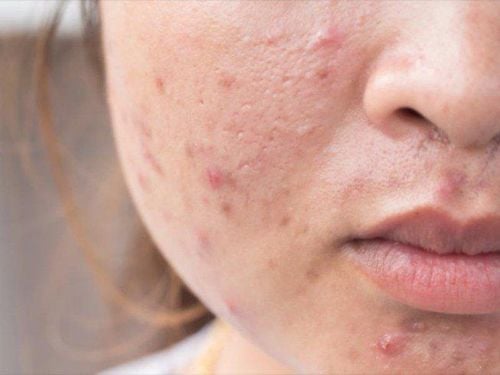
Đau đầu do nội tiết tố có thể gây dấu hiệu nổi mụn
4. Treating Hormonal Headaches 4.1 Home Remedies For headaches, the sooner treatment is started, the greater the chance of relief. Here are methods that may help:
Drink lots of water to stay hydrated. Lie down in a dark, quiet room. Place an ice pack or cold cloth over your head. Massage the painful area. Do deep breathing or other relaxation exercises. Your body's biofeedback can help you learn how to relax certain muscles to reduce the frequency of headaches. Magnesium supplements, which may help reduce headache intensity. Reducing stress in your life can also help prevent headaches or migraines. Complementary treatments include acupuncture and massage.
4.2 Medication Some medications focus on acute treatment for pain. These drugs are taken when a headache or migraine has started. These medications may include: Over-the-counter nonsteroidal anti-inflammatory drugs (NSAIDs), such as ibuprofen, triptans, which are specific migraine medications that can reduce the intensity of a migraine
For For women with frequent hormonal headaches, preventive therapy and medication can help. These medications can be used daily or before the time in the menstrual cycle when they know that a migraine attack is most likely to occur. These medications include: beta blockers, anticonvulsants, calcium blockers, antidepressants.
4.3 Hormone therapy Depending on the problem, your doctor may switch to a medication with a lower dose of estrogen to relieve symptoms. For some women, doctors recommend starting the next cycle of contraception early. That means skipping the last week's hormone-free placebo pills. Doctors usually recommend applying this every three to six months, which can reduce the frequency of headaches.
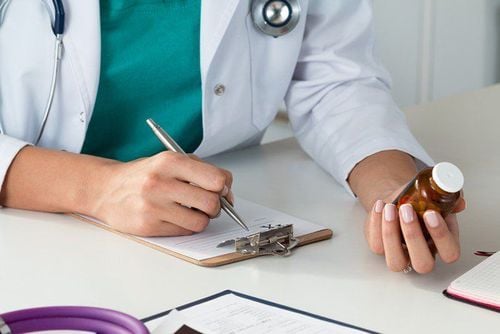
Liệu pháp hormon cần được bác sĩ chuyên khoa chỉ định với từng tình huống nhất định
5. Tips for Treating Hormonal Migraines 5.1 During Pregnancy or Breastfeeding If you are planning to become pregnant or are breastfeeding, discuss all medications you are taking. Use with your doctor. Because some headache medicines can harm the developing fetus. Your doctor may recommend some alternative medications.
5.2 During menopause or menopause If you are taking hormone replacement therapy and have headaches, ask your doctor for a dose adjustment. An estrogen patch can provide a low, steady dose of estrogen, and it can reduce the frequency and severity of headaches.
Using birth control pills and estrogen is safe for many women, but it also carries a higher risk of stroke and blood clots. Women with high blood pressure or a family history of stroke are particularly at risk should be alert.
Seek immediate emergency medical attention if you have a sudden, severe headache and have symptoms such as: Dizziness; stiff neck, rash, shortness of breath, loss of vision.
Vinmec International General Hospital is one of the hospitals that not only ensures professional quality with a team of leading medical doctors, modern equipment and technology, but also stands out for its examination and consultation services. comprehensive and professional medical consultation and treatment; civilized, polite, safe and sterile medical examination and treatment space. Customers when choosing to perform tests here can be completely assured of the accuracy of test results.
For detailed information, please contact the hospitals and clinics of Vinmec health system nationwide.
Please dial HOTLINE for more information or register for an appointment HERE. Download MyVinmec app to make appointments faster and to manage your bookings easily.
Reference source: healthline.com
SEE MORE
Signs of female hormone disorders Migraines and hormones in women Hormonal imbalance in women: symptoms, tests, treatment




